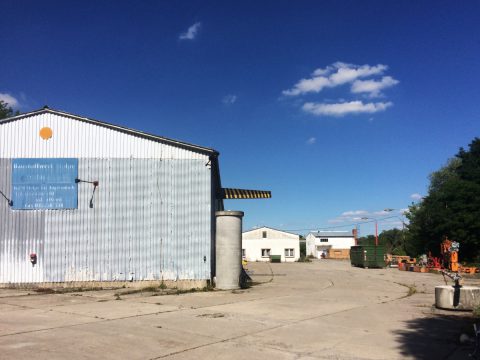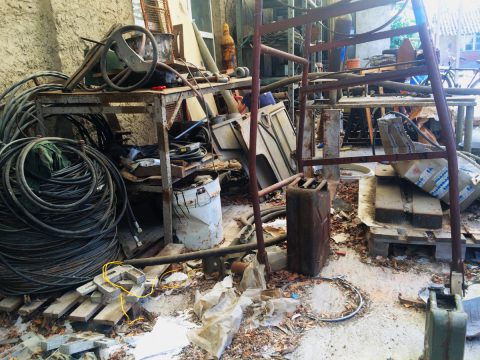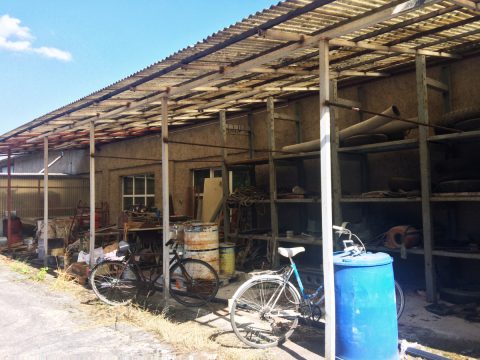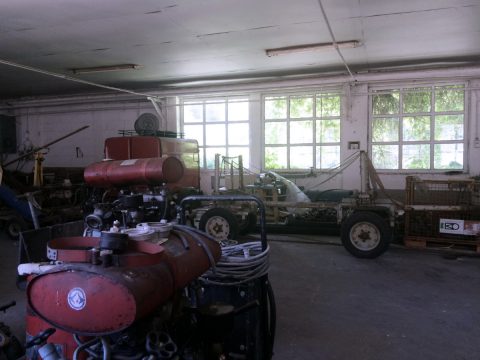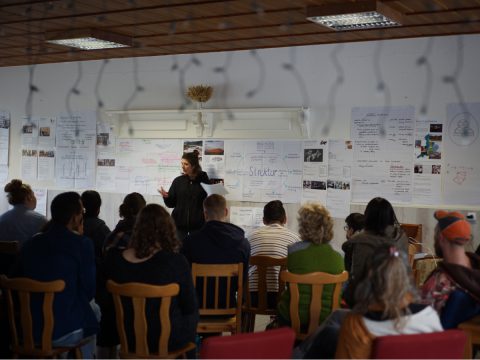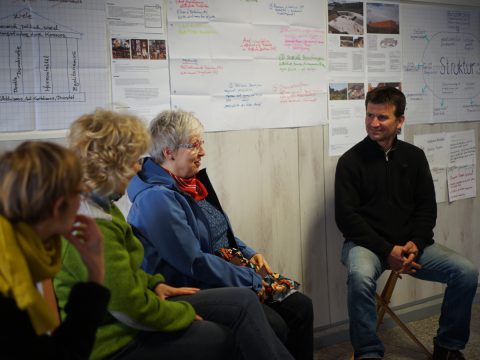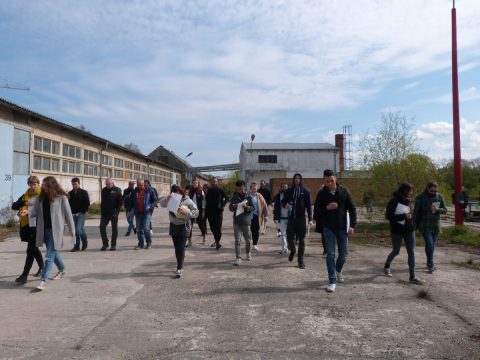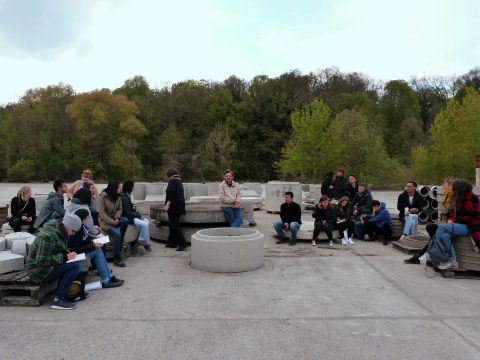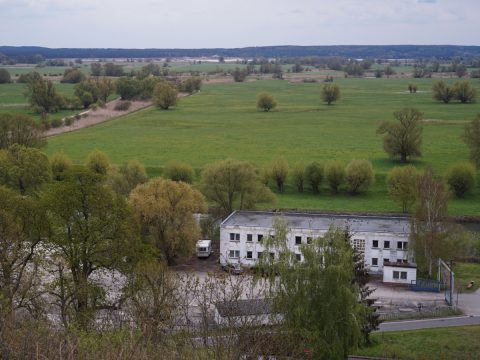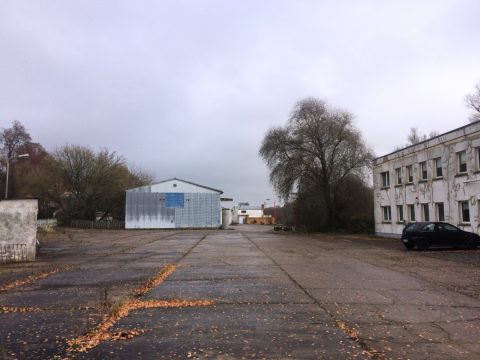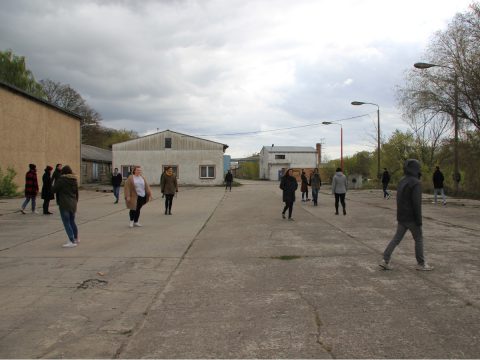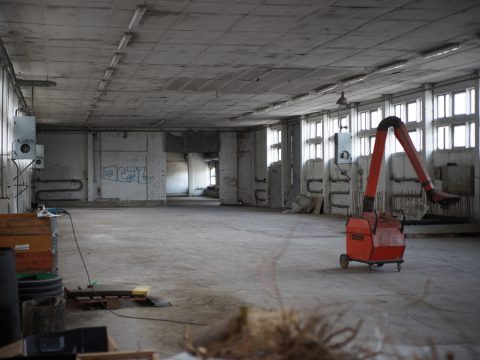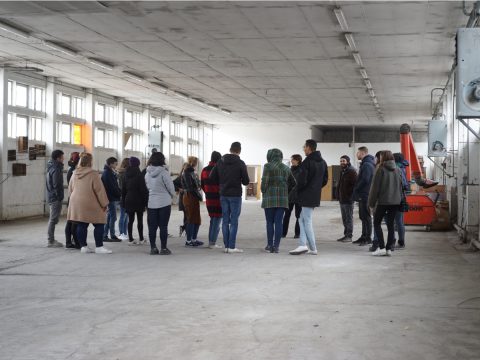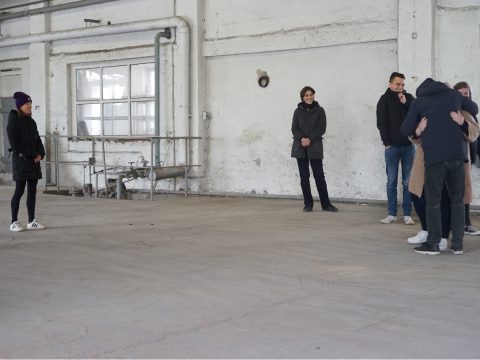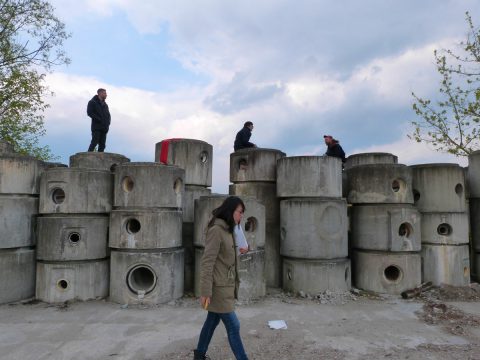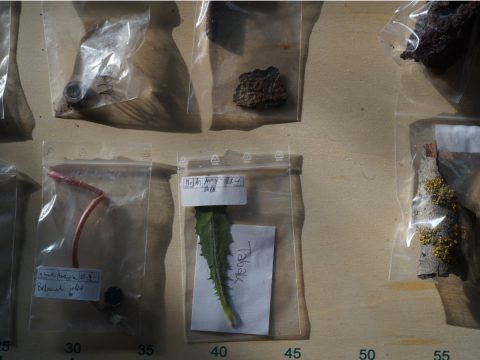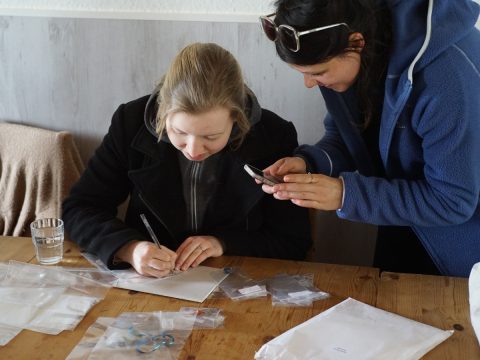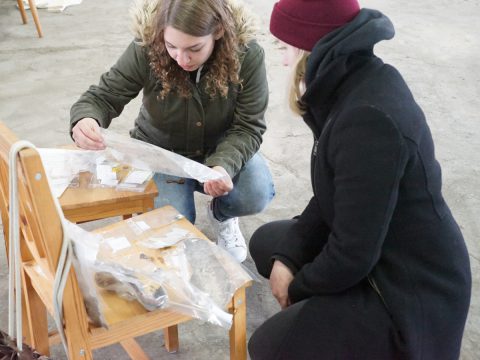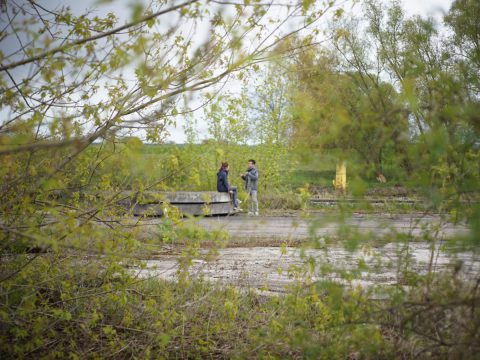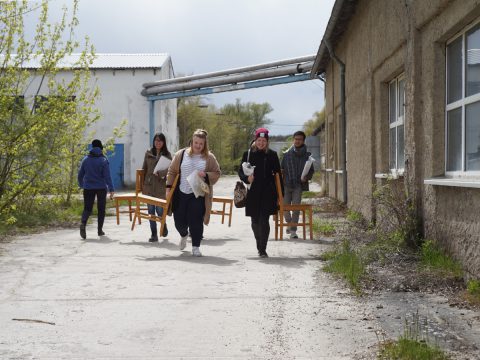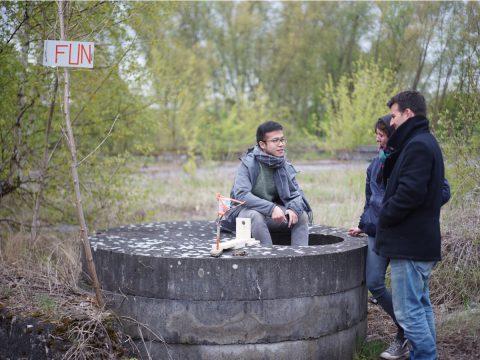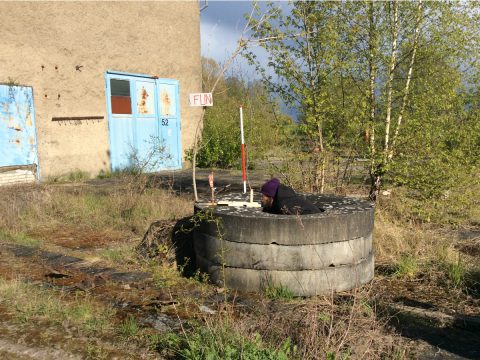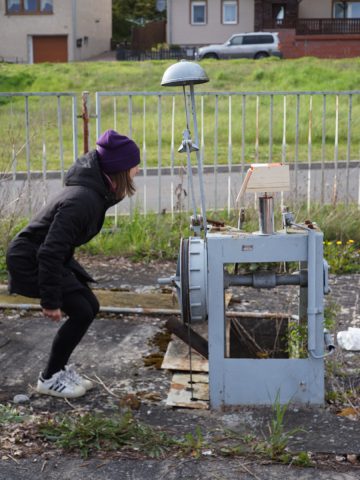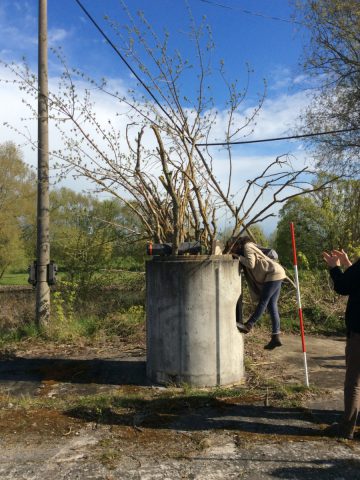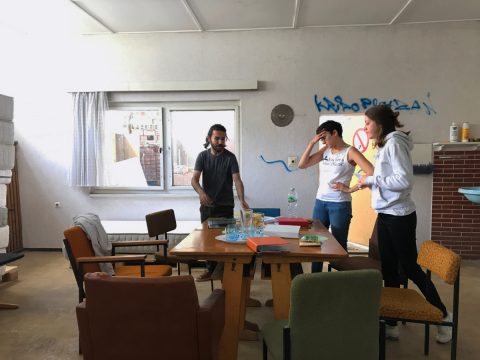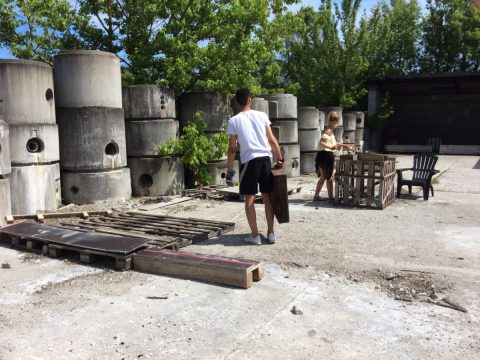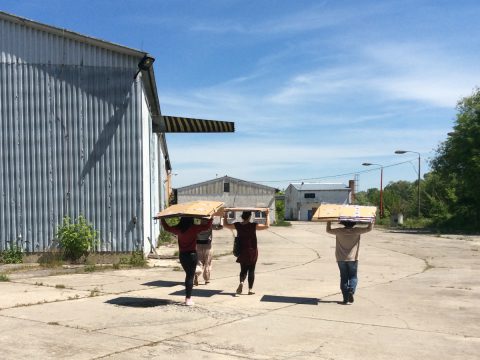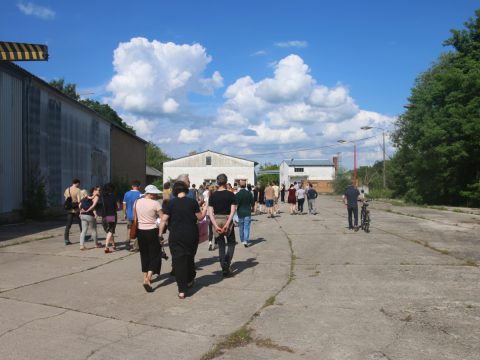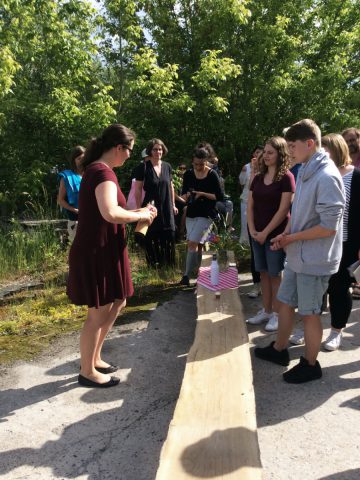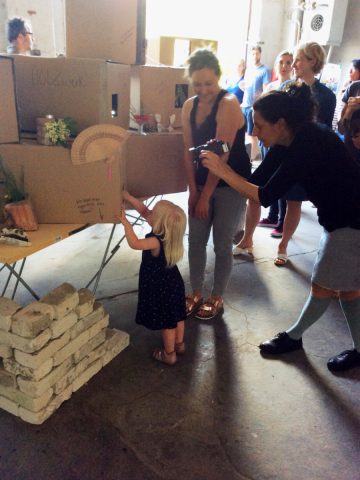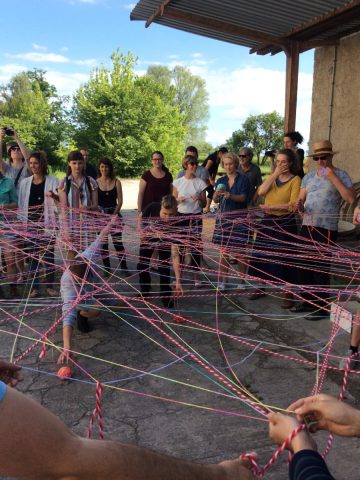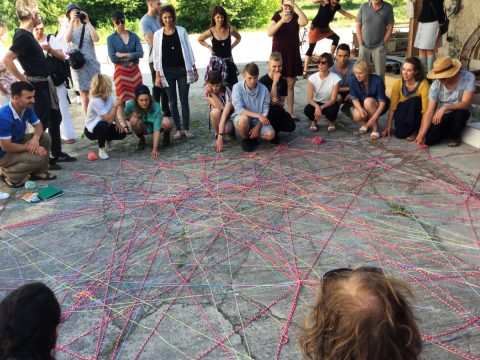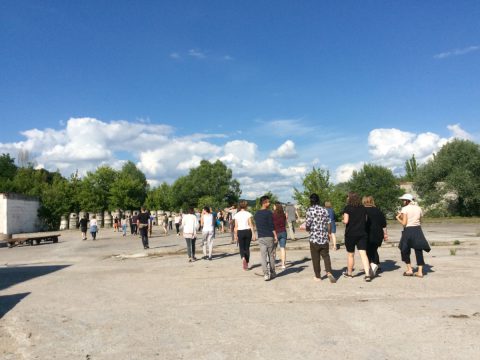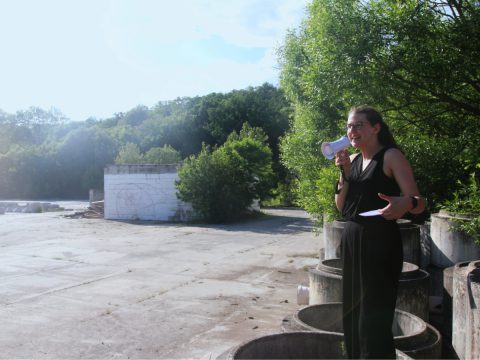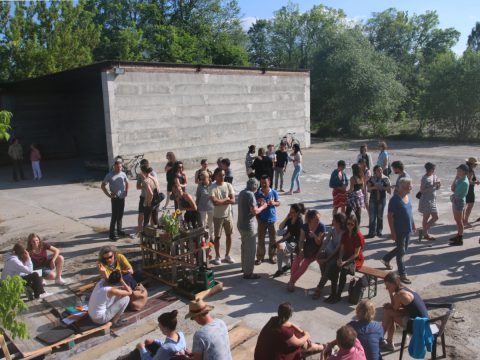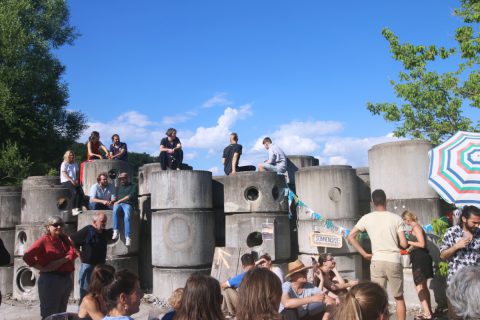Between July 2016 and June 2017 we co-created a seminar for Master students of business administration, cultural studies (Viadrina) and transformation design (HBK) to experiment with imagining possible futures for a place whose industrial past was meant to be transformed into a cultural, sustainable alternative.
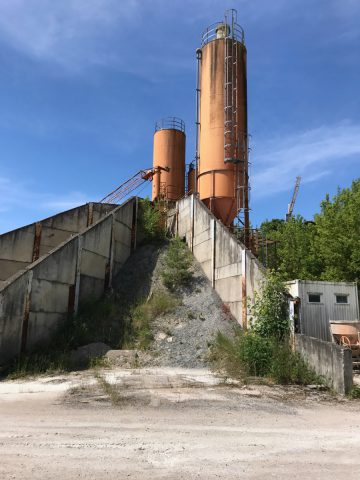
Un/Real Estates: experimenting with alternative ways of organising
2016 Kulturpark Stolpe GmbH acquired the former Betonwerk at the river Oder to develop it into a sustainable cultural and commercial location.
We came across it when visiting Ponderosa at Gut Stolzenhagen a non-profit organization consisting of 6 active members and 116 supporting members, whose primary purpose is to create an international meeting space for performance artists in the countryside outside of Berlin. Meeting Uli Kaiser and his partner Stefanie Maher, who run Ponderosa and talking about the idea to make Ponderosa part of the research of Working Utopias, they told us that they had bought a new place not far from Ponderosa – an old concrete factory (Betonwerk) in Stolpe – and that they were planning a two-year period during which the Betonwerk would be an experimental site for collecting and accumulating ideas on what the future of that old factory could be.
Later that hot summer afternoon in July 2016 Anke and Christina went on bikes to visit the fascinating location; a huge terrain with large long-stretched former production halls that spurred their imagination.
https://vimeo.com/382814392
Months later and after a few more conversations with Uli and a further visit at Stolpe the idea grew to invite students for a seminar on the Betonwerk. At around the same time, Saskia Hebert had invited Anke for a talk at Braunschweig University for the Arts on a symposium about societal transformation processes. Out of a conversation that took place at this symposium, Saskia and Anke decided to bring both their students together for imagining and developing new futures for the former concrete factory.
They were curious about inviting Anke’s business students and students of cultural studies as well as Saskia’s transformation designers to work together in an highly interdisciplinary manner.
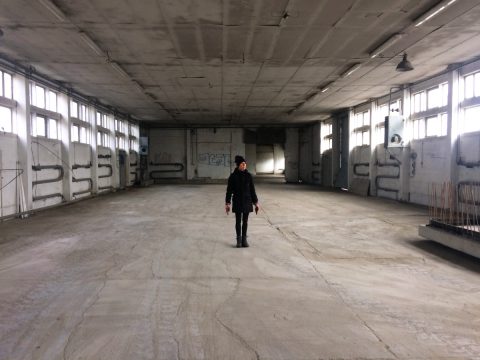
Together with Uli and Saskia we also decided to take seriously the concrete factory’s link to Ponderosa and to make performance art’s perspectives on the world part of the seminar. We thus decided that Christina would contribute to the frame of the overall seminar a perspective on space and time from her physical practice. At that time Christina collaborated with Ayşe Orhon, a performer from Istanbul, for a new piece of performance art and so she asked Ayşe to teach the Betonwerk workshop with her.
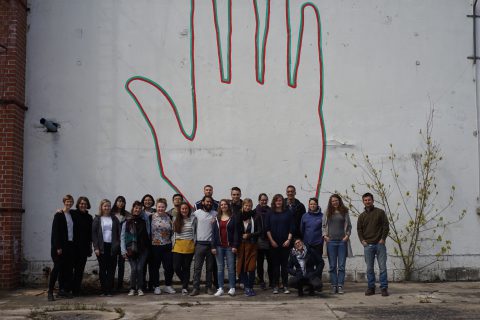
Over three month between April and June 15 students from European University Viadrina Frankfurt / Oder and University of Fine Arts Braunschweig were asked to develop ideas, concepts and possible business models to initiate the long-term transformation process for the former concrete factory. but also , ,.
During the research weekend we thus ran two workshops: Titled “Spatial Dimensions of Organizing”, Ayşe Orhon and Christina Ciupke taught the students to explore the physical space of the concrete plant by means of sensory and body-awareness exercises.
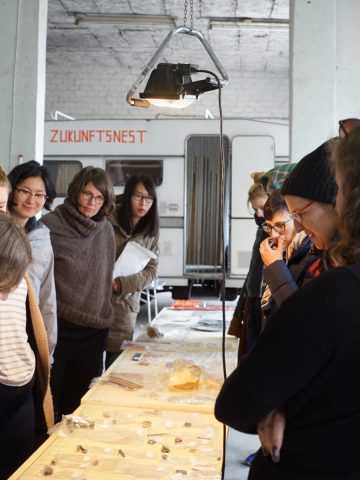
In a second workshop titled “Speculative Forensics” the students subsequently engaged with different kinds of materials they had collected over time to re-construct them into little sculptures that tell a story of the Betonwerk’s future that were distributed across the premise of the Betonwerk. As carriers of future narratives – memories, insights and desires – these sculptures constituted seven raw scenarios. At the end of the day, those so-called ‘nests of future’ were presented to the owners of the Betonwerk as well as the interested public in the course of a common walk.
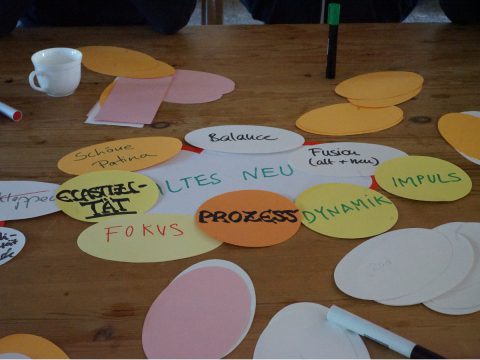
Over the following six weeks, the students further developed these raw scenarios into concepts – including possible organisation or business models, engaging already available resources, such as spatial, but also local skills, structures and networks – to be presented at a second weekend in June. The five project ideas focused on aspects of work, community, education and culture; and in the widest sense thought about models of alternative organizations. They were presented in two ways: a performance and a concept presentation.
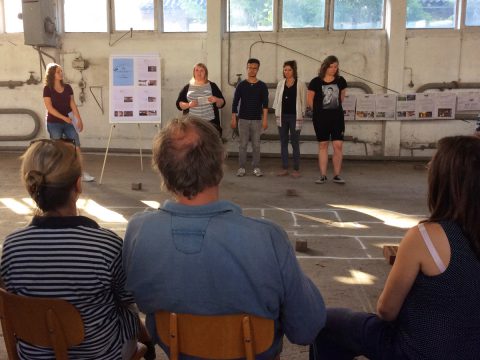
A following presentation of the concept, instead, allowed them to get to know more about the structural, conceptual and organisational dimensions of the collective fiction that they had experienced before.
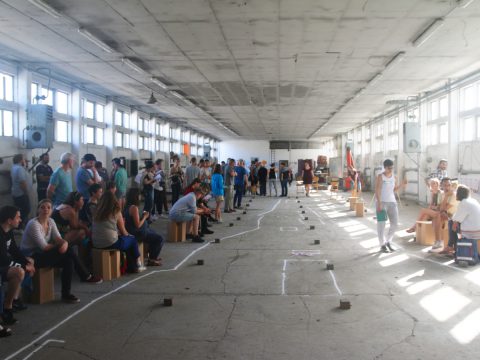
It also allowed them to ask questions, to engage in discussions and to express which future they would actively support. The day ended with a barbeque and music. The last day of the course allowed intense reflection and a structured feedback between the students and the different cooperation partners of the summer workshop.
© Catherine Sydow
After the seminar has ended, the transformation design students documented the project also in a little booklet which they exhibited at HBK at the end of the term.
